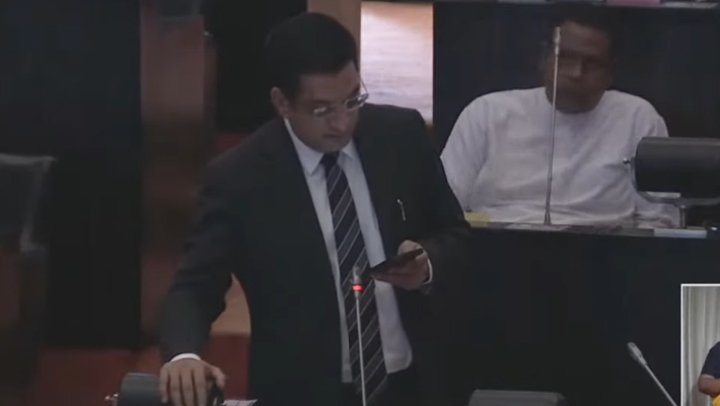ECONOMYNEXT- Sri Lanka’s Tokyo Cement mentioned it noticed a “vital improve in demand” as building exercise started to renew, with the alternate price stabilizing and prices falling.
The rupee fell to 360 per US greenback after the central financial institution printed cash to scale back rates of interest (potential output) and imposed a give up rule utilizing a float, which appreciated to 320-330 ranges in 2023 after rates of interest had been elevated and the give up line had been eliminated.
“The rupee stabilized considerably in comparison with the second quarter of FY22/23, throughout which interval the foreign money depreciated to round Rs. 369-370/- in opposition to the USD, whereas the rupee appreciated within the second quarter of FY23/24 to a low of Rs. 312-325/- in opposition to the USD,” Tokyo Cement advised shareholders.
“This downward however secure motion in alternate charges supplied much-needed stability for corporations to import items and set costs.
“As well as, a decline in world commodity prices and freight charges decreased costs for a variety of uncooked supplies, together with cement, from the beginning of the second quarter of FY23/24.”
World commodity costs are additionally falling after the Fed stopped printing cash and commenced rolling again the earlier yr’s liquidity injections.
Most central banks of the so-called ‘Third World’ started to depreciate currencies sharply from the late Seventies onwards, permitting the unhindered Cambridge-Harvard financial system to realize the higher hand after the second modification of the IMF articles left them with no credible financial anchor.
As a substitute of tightening financial coverage when foreign money shortages arose by printing cash early, or tightening capital when outflows started, the currencies had been destroyed to keep up the incorrect rates of interest, and steep corrections had been later applied, which led to sharp downturns.
The development and actual property sectors that profit from mistargeted rates of interest are typically the large victims of the bursting of central financial institution credit score bubbles.
Amid money move issues, the federal government paid contractors in paper bonds final yr.
“The federal government’s determination to settle excellent funds via authorities bonds to contractors eased funds to suppliers, permitting the resumption of tasks beforehand halted as a consequence of money move issues,” Tokyo mentioned.
“As well as, the federal government has introduced the easing of most import restrictions, permitting entry to industrial and construction-related items that had been beforehand unavailable.”
Sri Lanka’s personal credit score sometimes recovers about 12 to 18 months after a profitable IPO stabilizes the foreign money in opposition to the affect of the unique price cuts, and rates of interest cease rising within the stabilization efforts, analysts say.
Tokyo mentioned a CESS tax was imposed on imported uncooked supplies, elevating prices. Tokyo imports clinker and different supplies for its milling vegetation.
A social contribution tax (a graduated tax) was levied on cement upon sale.
“The Group is presently seeing some revival from each the personal and institutional sectors
building tasks,” mentioned Tokyo cement.
“Within the brief to medium time period, foreign money stabilization, falling inflation and falling rates of interest ought to enable business and personal sector growth tasks to renew within the coming yr.
“Nonetheless, home consumption isn’t anticipated to get well till the medium to long run, as a consequence of decreased buying energy, a weakened foreign money and will increase in utilities and taxes.
“The federal government supporting the financial and financial insurance policies prescribed by the IMF could allow it to qualify for entry to international infrastructure financing within the type of grants and loans.”
learn extra

